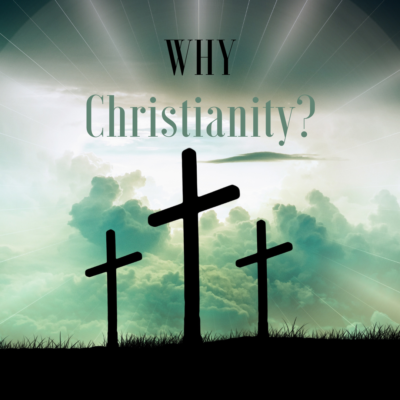
by Suellen | Successful Living
 William Booth grew up in Nottingham, England during the mid 1800″s. Born to a family that had lots of wealth, he knew what it was like to have all the material things he desired. However, when William was 13 years of age, his father lost the family business and they were suddenly broke.
William Booth grew up in Nottingham, England during the mid 1800″s. Born to a family that had lots of wealth, he knew what it was like to have all the material things he desired. However, when William was 13 years of age, his father lost the family business and they were suddenly broke.
Not having any money for his education, the lad went to work as an apprentice to a pawnbroker in a “seedy” section of London. That is where he gained a desire to help the “poorest of the poor.” In 1852, William left the business to become a minister.
After several years of preaching, he joined a group of ministers who preached from a tent. Then, as his ministry grew, he started an organization: The Salvation Army. Whereas many ministers wanted to preach to the rich, Booth wanted to preach to the poor. His crowd consisted of the worst of society – prostitutes, gamblers, drunkards, and thieves.
There was much opposition to this ministry. Many religious people were offended that he was helping the “rough” people in the name of Christ. In fact, he was often attacked physically by those who were offended, many times suffering wounds inflicted by them. He had many opportunities to stop his work, but an inner strength drove him to continue. To those offended, he returned only kindness.
Just a few months before his death in 1883, William Booth made his last speech.
While women weep as they do now, I’ll fight; while men go to prison, in and out, in and out, as they do now, I’ll fight; while there is a drunkard left, while there is a poor lost girl on the streets, while there remains one dark soul without the light of God, I’ll fight – I’ll fight to the very end.
And he did. William Booth lived a life of the High Road Principle. He lived his life following the inner voice of God, and no one could stop him. When he received evil treatment, he returned kindness. Although he had a crowd of hasslers who followed him everywhere he went, he never fought the people. He went about his business doing what God had called him to do, and he continued to help the “worst of the worst.”
Now his organization is a world-wide ministry, and very well-known for its generosity in times of need. When Booth died, he had no idea that he was launching such a huge plan, but he knew that he was following the call of God for the people of his day. And he never gave up.
When I encounter such dedication, such kindness, such determination, I am humbled and inspired, aren’t you? We can look around us today and see so many people who need us. They need Jesus, and they need us to help them make the transition. Sometimes the people may be victims of hurricanes or other natural disasters. Other times they are victims of their own evil habits. But either way, they need Him and they need us.
Just thinking about this makes me want to do more.
by Suellen | Successful Living
Psalm 100
Make a joyful noise unto the Lord, All ye lands
Serve the Lord with gladness! Come before His presence with singing!
Know (perceive, recognize, and understand with approval) that the Lord is God. It is he who has made us, and not we ourselves (and we are His)!
We are His people and the sheep of His pasture.
Enter into His gates with thanksgiving and into His courts with praise.
Be thankful and say to Him, bless affectionately praise His name.
For the Lord is good; His mercy and loving-kindness are everlasting,
His faithfulness and truth endure to all generations.
It is amazing what a thankful heart does for us.
This is a time when we look around and see so much pain. Personally all of us have issues with which we are dealing. Money issues, family issues, health issues, and issues concerning the state of the world.
But in the midst of the trouble, we can look to our God for help, refuge, and strength. He is our deliverer, our healer, and our provider.
As we begin to praise Him, we are reminded of all of these things. He makes a table for us in the presence of our enemies. He anoints our head with oil.
The joy, which is our strength, bubbles up within us. Our faith rises up and we begin to see the way out. God’s plan is coming forth.
I am so thankful today to our God and His faithfulness to us. He is the greatest!

by Suellen | Successful Living
 We woke up early today. Mickey has a men’s breakfast meeting in a nearby town, then church, and finally he will be speaking at an area Thanksgiving service. Whew! Busy day.
We woke up early today. Mickey has a men’s breakfast meeting in a nearby town, then church, and finally he will be speaking at an area Thanksgiving service. Whew! Busy day.
As I brewed my cup of coffee, I glanced out of the kitchen window, and was awed by what I saw. It was the same view I had admired often, but this time it was different. This time it seemed to speak to me.
I love sunrises – even more than sunsets. It’s, of course, the beauty of the swath of color, but it’s more than that. It’s announcing something – a new day. A new chance. A new breath. New. New. New. I love the message.
Maybe it’s because I never live up to my own expectations, but I’ve always loved new beginnings. Yesterday is gone, and you get to get up and go again. You don’t know exactly what the day will bring, the people you may meet, the opportunities and challenges you will face, but you are ready to “do it again.”
It’s as if God planned our lives in segments – segments we could handle. He wants us to value each segment and live it wisely. That’s all we get, really. One day at a time. Whether we are doing big things or little, we do them one day at a time. When we master that concept, we master many others.
Today is important. Today is someone’s birthday and another’s funeral. Today people will come to know Jesus. Today people will get engaged or married. Today new babies will come into the earth.
Today is also the day we need to diet, if we are going to. Or exercise, if we are going to. Or read the Bible and pray, if we are going to. Or forgive that person, if we are going to. Or stop drinking, if we are going to. Today is important.
When we “get this” concept, our lives change. It’s so easy to think that tomorrow we will accomplish what we dream about, but today doesn’t matter. But it does. That’s all we have – one day at a time.
As I look at the beauty of the dawn, something else comes to mind. Lamentations says that God’s love is “new every morning.” God’s faithfulness to us is symbolized in the fact that He never misses giving us a new day – not until the time we go to our next life. One more chance – and I’m going to take it.
Oops, I’d better get going. I need to face the day.
Psalm 90:12 So teach us to number our days, that we may apply our hearts unto wisdom.

by Suellen | Successful Living
 There are many people who say that they believe in God. They try to live clean, righteous lives. But are they God’s friend? Not all of them. What about you? Are you His friend?
There are many people who say that they believe in God. They try to live clean, righteous lives. But are they God’s friend? Not all of them. What about you? Are you His friend?
So why would someone who said they believed in God and lived a good life not be God’s friend? Well, let’s look at two men who lived long ago – probably within the same century.
One of these men ended up becoming the patriarch of the Jews, he was in the lineage of Jesus, and is often called the “Father of Faith.” He had such a close walk with God, that Jehoshaphat referred to him as “God’s friend.”(II Chron 20:7)
The other is known for his patience (James 5:11), but that’s about it. He wasn’t in the lineage of Jesus, he wasn’t ever referred to as God’s friend – and his descendants were never mentioned as followers of God.
I’m sure you know these two men I’m talking about: Abraham and Job.
So what’s the difference? There are several.
Abraham was humble in his relationship with God. As you read his story in Genesis 12-25, you never see anything but a humble man. Because of that humility, Abraham always looked to God’s grace – and not his own goodness. Thus he had great faith. On the other hand, Job was very proud. In the start of Job’s story he was a blessed man, but he depended on his own goodness to keep his blessings. Instead of humbly trusting in God, he was always performing sacrifices to God just in case his children had done something wrong.
Humility caused Abraham to have great faith, because his focus was on God. Pride caused Job to have great fear, because his focus was on his own goodness.
The bottom line was that God cut a covenant with Abraham. This was a freewill thing. Abraham was willing to leave his family and friends and go into a land he knew nothing about – just because God told him to do it. In fact, when he got to the new land, there was a famine there, and Abraham had to go to Egypt for awhile. But he stayed faithful.
Then when God promised him a son, Abraham believed God, even though he was well advanced in years. Many years transpired before the fulfillment of this promise, and Abraham made many mistakes during that time. But his faith was not in his own goodness; it was in God’s goodness. Genesis 15:6 says that “Abraham believed God, and He accounted it to him for righteousness.”
One of the keys to being in covenant with God is that we believe in God’s greatness, and not in our own. We realize that however good we get, God is still better. However smart we think we are, God is smarter. Trust in Him grows out of that attitude.
And out of that humility, faith, and trust, grows obedience. When we see in God’s word direction which may seem strange, we are willing to follow it anyway. We know Him, we trust Him, and we obey Him. For instance, when the Word says to “forgive,” even though we have been treated injustly, we humbly obey. (Pride will try to justify our unforgivenenss).
God is looking for a people who will have this kind of “friendship” with Him. People who will be humble enough to want to know Him better and want to be in covenant with Him.
Are you one of those people? Think about it. Only you can answer that question.
Forever Upward!
Suellen Estes
PS In case you are wondering why I show so many eagles in my posts. First, I believe that they are wonderful symbols of the Christian walk which causes us to soar with God. Secondly, my husband is a photographer and his specialty is eagles.
![Signs Of Our Covenant]()
by Suellen | Successful Living, The Church Awakening
 In the days to come, I am going to be talking about our covenant with God through Jesus. That is something that many people either push aside or don’t understand. As Christians, we are in a “spiritual agreement” with God which opens up doors for us to live above many negative circumstances which come our way.
In the days to come, I am going to be talking about our covenant with God through Jesus. That is something that many people either push aside or don’t understand. As Christians, we are in a “spiritual agreement” with God which opens up doors for us to live above many negative circumstances which come our way.
This covenant has been compared to a will which might have been left for us. If you are a beneficiary of a will, you don’t receive the inheritance until the will is probated. If you don’t know the will is available, you might go through your life without receiving your inheritance.
Our inheritance from Jesus is much the same. If we don’t even know that we have this covenant with Him, we may go through life without ever receiving all that He paid for. So what is in our covenant? Many things, and I will be talking about these in the next posts.
To give a picture of this inheritance, I want to bring attention to a study done by a man named Richard Dugdale in 1877. His study addressed the lineage that goes with righteous heritage. There has been much discussion about the details of the study, but there are enough undisputed facts that it seems that definite conclusions can be drawn.
The first man was Jonathan Edwards, who was born October 5, 1703. At age 13, he entered Yale University and graduated with honors. Entering the ministry, Edwards was largely responsible for the Great Awakening that swept across America, uniting the colonies prior to the Revolution. His famous sermon, “Sinners in the Hands of an Angry God,” was sent across the land, bringing repentance to many. Later, Edwards became President of Princeton College.
Jonathan Edwards married Sarah Pierrepont, and according to A Study in Education and Heredity by A.E. Winship (1900), their descendants were incredible. They included:
1 U.S. Vice-President
3 U.S. Senators
3 governors
3 mayors
13 college presidents
65 professors
30 judges
80 public office holders
100 lawyers
100 missionaries.
This same study examined a family known as “Jukes.” In 1877, while visiting New York’s prisons, Richard Dugdale found inmates with 42 different last names all descending from one man, called “Max Jukes.” Born around 1720 of Dutch stock, Max was a hard drinker, idle, irreverent, and uneducated. He would spend many days not working, but drinking and fighting. Dugdale considered this man an atheist.
His descendants included
310 paupers
50 prostitutes
40 “physically wrecked by indulgent living”
7 murderers
60 thieves
130 other convicts.
The “Jukes” descendants cost the state more than $1,250,000.
Now some people will look at this and conclude that education, hard work, and good morals contributed to the stark contrast in the two families. I agree that those things contributed, but I see the source of those attributes coming from God Himself. When people honor God and His word, they will be hard working, educated, moral, – and blessed.
Now am I saying that when your family has problems you are not being blessed? Absolutely not! Everyone has problems, but as we continue in our covenant with God, we will be able to overcome the problems. And we will see God’s hand on our children and grandchildren.
It’s something to think about, isn’t it?
Forever Upward
Suellen Estes
We electors have an important constitutional power placed in our hands; we have a check upon two branches of the legislature . . . the power I mean of electing at stated periods [each] branch. . . . It becomes necessary to every [citizen] then, to be in some degree a statesman, and to examine and judge for himself of the tendency of political principles and measures. Let us examine, then, with a sober, a manly . . . and a Christian spirit; let us neglect all party [loyalty] and advert to facts; let us believe no man to be infallible or impeccable in government any more than in religion; take no man’s word against evidence, nor implicitly adopt the sentiments of others who may be deceived themselves, or may be interested in deceiving us.
Read more

 William Booth grew up in Nottingham, England during the mid 1800″s. Born to a family that had lots of wealth, he knew what it was like to have all the material things he desired. However, when William was 13 years of age, his father lost the family business and they were suddenly broke.
William Booth grew up in Nottingham, England during the mid 1800″s. Born to a family that had lots of wealth, he knew what it was like to have all the material things he desired. However, when William was 13 years of age, his father lost the family business and they were suddenly broke.






